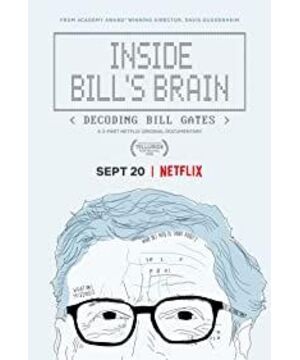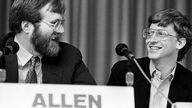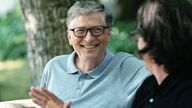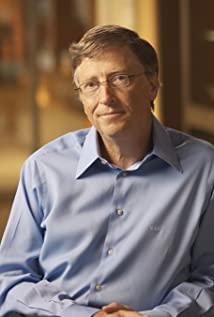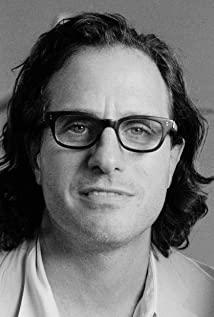Write down a few thoughts:
Bill Gates became the first known business hero of our generation at a very young age. He has experienced the transformation from a talented boy who dropped out of school and succeeded, to a young businessman who is making the right choice every minute, to the image change that the public made Steve Jobs as a new hero while moving towards the opposite of cool and creative, and finally became a An old man who keeps a low profile and throws away his energy and money for the more under-the-radar business of humanity. The intelligence, kindness, honesty and a little bit of paranoia he showed in the film really touched me.
The title production of this film is at the top level in the documentaries I have seen. It uses the interface from MS-DOS to the early version of Windows to carry text information, which is very special and stylized. It stores history by freezing the achievements of Bill Gates. In this way, he separates the person in people's impression from the person in this film.
· The second episode is very moving, the producer has found a clever rhythm, shuffling his teenage history and the two-line interspersed narrative of his recent polio eradication efforts, echoing each other, echoing each other, and motivating each other.
Bill Gates and Steve Jobs were both hippies, but his family heritage, white upper-middle-class ways of doing things made him the ultimate him. A few cultural details worth recording, Gates' earliest buddy Paul Allen played and listened to Jimi Hendrix all day long on guitar, and "Are You Experienced? ', Gates later said, listen to anything, just don't want to listen to Jimi Hendrix anymore. Paul Allen is also the representative of the hippie generation of hackers like Steve Jobs. He took Gates to drink big wine, smoke grass, and watch black B-movies. This experience also made the two best friends, but Gates is not someone who will walk into this lifestyle after all.
A quote from Gates' study as an architectural fixture, from Fitzgerald's The Great Gatsby.
The interview lineup in the film is very good, Warren Buffett, Nythan Myhrvold are all in a lot of appearances, about the latter I wrote a lot about him and his company Intellectual Ventures when I was a reporter, but it was the first time I saw him alive Speaking out.
Gates and Buffett both love to play bridge, a hobby with Deng Xiaoping. This is a card game that requires both leadership and support.
· The film does not mention Apple and Jobs at all, and the commercial disputes of the year are a thing of the past for Bill Gates. Gates belonged to the 90s, Steve Jobs belonged to the 2000s, and the tech business star after them belonged to Elon Musk of the 2010s. Whether it is performative or not is one of the biggest differences between American businessmen before and after.
· But when I watch the film, I keep thinking of Steve Jobs. Both Jobs and Gates are geniuses. Jobs was more artistic and died at the peak of his talent. Gates, after overcoming all the successes and evils brought by genius, went beyond disputes and moved to a great guy from the perspective of personality and morality. Speaking of which, this is the success of the Christian tradition of white Americans. In the end, I remembered Wang Shuo's words when he talked about Lao She, and it is quite appropriate to apply it here: death may make a great artist, but life can make a great work even more.
View more about Inside Bill's Brain: Decoding Bill Gates reviews


